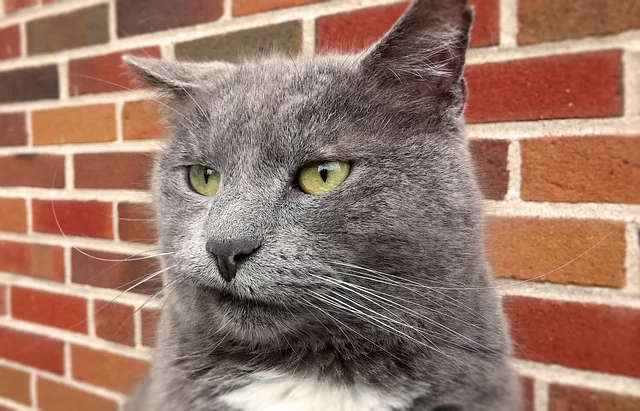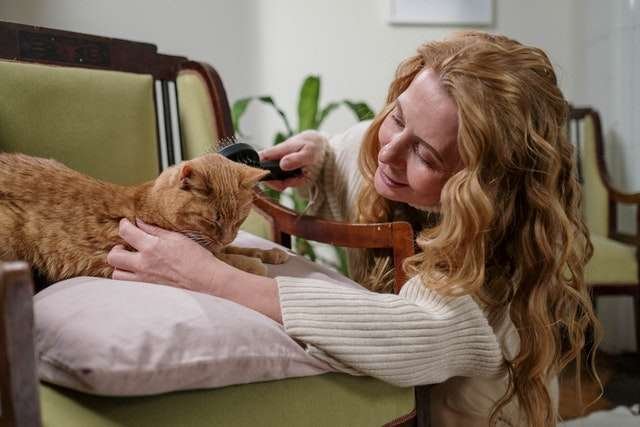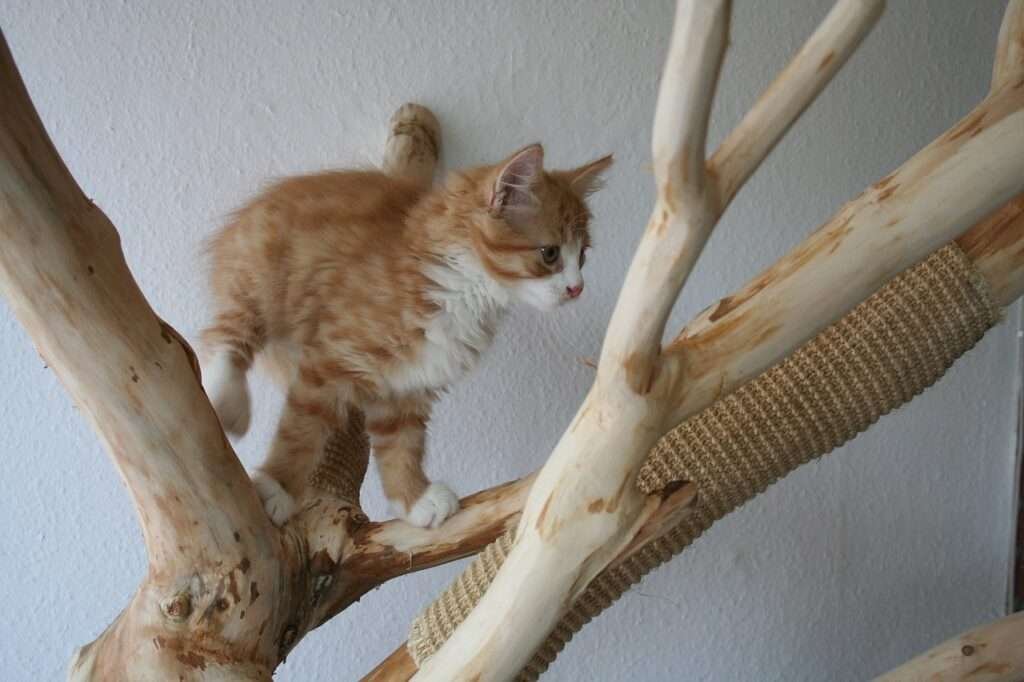Comprehensive Pet Care Guide For Various Pets.
Having a pet can bring us great joy and companionship. Whether you’re a dog lover, a cat person, or someone who prefers the company of smaller creatures like fish or hamsters, it’s critical to understand the unique care needs of each type of pet.
Today I thought we would look at how to take great care of many pet types including; dogs, cats, fish, budgies, snakes, lizards, rabbits, guinea pigs, pot belly pigs, hamsters, rodents, axolotls, and parrots.
Taking Care Of Dogs.
Dogs are commonly referred to as man’s best friend, and with good reason. They are loyal, loving, and make excellent companions.
To ensure your Dogs health and happiness, here are some tips for taking care of them:
1. Give your dog a healthy diet that includes fresh water and premium dog food.
2. Dogs need to exercise on a regular basis. Take them on regular walks or involve them in play activities.
3. To keep them clean and healthy, regular grooming is required, which includes brushing their coat, cutting their nails, and cleaning their ears.
4. Make sure they obtain the required vaccinations and routine check-ups at the vet.
5. Buy them a cosy bed for inside and outside, this way, the inside bed stays nice and clean and they can use the outside bed to chill out and relax during the day.
6. If it’s possible, provide them with a designated digging area such as a sand pit. This can be beneficial for both your dog and you as follows:
a) Natural Behaviour: Dogs have an innate instinct to dig. In the wild, they dig to create shelter, find food, or explore their surroundings. By providing a designated area, you allow them to express this natural behaviour without damaging your garden or yard.
b) Exercise and Mental Stimulation: Digging is a physical activity that engages your dog’s muscles. It can also be mentally stimulating as they search for hidden treasures (or simply enjoy the texture of the sand). Regular digging can help prevent boredom and reduce anxiety.
c) Preventing Undesirable Digging: If you’ve noticed your dog digging up your flower beds or lawn, redirecting their digging behaviour to a designated spot can save your plants and landscaping. Consistently guiding them to the sand pit reinforces the idea that digging there is acceptable.
d) Bonding Opportunity: Digging together in the sand pit can be a fun bonding activity for you and your dog. You can hide toys or treats for them to discover, turning it into a game.
Creating a dog-friendly digging area doesn’t require much effort.
· The first thing you need to do is to work out a good location.
· Select a spot in your yard where you’re comfortable with your dog digging.
· It should be away from delicate plants or areas you want to keep pristine.
There are a few steps with preparing this area:
1. Sand Pit: A sandbox or a designated area filled with soft sand works well. You can purchase a child’s sandbox or create one using wooden borders filled with play sand.
2. Size: The size of the sand pit depends on your available space and the size of your dog. Make it large enough for them to comfortably dig and move around.
3. Depth: Aim for a depth of about 6 to 12 inches (15 to 30 cm). This allows your dog to dig without hitting hard ground.
4. Toys and Treasures: Bury toys, bones, or treats in the sand to encourage digging. You can also hide them just below the surface.
Give Your Dog Positive Reinforcement When They Dig In Their Area.
Whenever you see your dog digging in the designated area, praise them and offer treats. Positive reinforcement helps reinforce the behaviour.
If they start digging elsewhere, gently guide them back to the sand pit.
Maintenance of their dig area:
1. Regularly check the sand pit for cleanliness. Remove any waste or debris.
2. Refill the sand if it gets too shallow or compacted.
Remember that not all dogs will take to the sand pit/dig area immediately.
Some may need time to adjust, while others might prefer other digging spots. Be patient and consistent in redirecting their behaviour, and soon they’ll associate the sand pit with digging fun.
Taking Good Care Of Our Cats.
Cats are recognised for their independence and enigmatic personalities. Here are some important maintenance guidelines to bear in mind if you currently own a cat or are thinking about getting one:
Give your cat fresh water and premium cat food as part of a balanced diet.
It’s crucial to give them regular playtime and exercise to keep their minds and bodies engaged.
To satiate their natural urges, keep their litter box clean and give them a suitable scratching post.
In order to avoid matting and infections, regular grooming is required, which includes cleaning their ears and brushing their coat.
Make sure they obtain the required vaccinations and routine check-ups at the vet.
Take Proper Care of Your Fish.
Having fish as pets may bring serenity and beauty into your house. Take into account the following when giving your fish the proper care:
1. Create an aquarium that is suitable for the kind of fish you have, taking into account the fish’s size and water parameters.
2. To guarantee a healthy environment, regularly check and maintain the pH, temperature, and cleanliness of the water.
3. A balanced diet of suitable fish food should be fed to your fish; do not overfeed them.
4. Maintain sufficient filtration and aeration to maintain the water’s oxygen content and toxin-free state.
5. To make sure you are fulfilling the particular needs of your fish species, do some research on their needs.
Look After Your Budgies.
Budgies or Parakeets are popular companion birds that are prized for their colourful plumage and lively dispositions.
The following essential budgie care requirements might help:
1. Make sure the cage is roomy enough for the bird to fly and exercise.
2. Provide a diverse menu consisting of premium bird seed, as well as fresh fruits and veggies.
3. To keep them engaged in both mental and physical activities, provide toys and perches.
4. Maintain their cage clean on a daily basis and give them fresh water.
5. Being gregarious birds, budgies require company and social interaction.
Give Your Pet Snakes & Lizards The Care and Love They Need.
Snakes.
For those who love reptiles, snakes can be fascinating pets.
Here are some care guidelines if you’re thinking about getting a snake:
1. Provide a safe, suitable inclosure with the right amount of lighting and heating.
2. Investigate and supply the appropriate diet for your species of snake, which may consist of frozen or live prey.
3. To encourage shedding, keep the enclosure’s humidity levels at the right levels.
4. To maintain a clean environment, clean the inclosure on a regular basis.
5. Take good care of your snake and make sure you are aware of its habits and possible hazards.
Lizards.
There is quite a reasonable variety of Pet Lizards available, they come in a variety of shapes and sizes and each has specific needs for proper care. The following is some general recommendations for lizard care:
1. Investigate and construct a suitable inclosure with the right humidity, lighting, and heating settings.
2. Give your lizard a diverse diet that includes fruits, veggies, and live insects that are appropriate for its species.
3. To replicate their natural habitat, provide hiding places and climbing frames.
4. To keep the environment hygienic, clean the inclosure on a regular basis.
5. See a veterinarian that specialises in reptiles to make sure you are taking care of your lizard’s unique requirements.
Caring For Your Pet Rabbit.
Although they are incredibly cute, cudly and sociable pets, rabbits need special care to be healthy.
Take into account the following requirements for rabbit care:
1. Give them a roomy, safe inclosure that allows them to run, jump, and play.
2. Provide a well-rounded diet consisting of fresh veggies, hay, and a small quantity of pellets.
3. Give them regular opportunities to exercise outside of the inclosure, such as during supervised indoor playtime or in a safe yard.
4. Brush your rabbit’s coat and cut their nails on a regular basis.
5. Make certain they obtain the required immunisations and routine veterinary examinations.
Take Good Care of Your Pet Guinea Pigs.
Small, cute and friendly, guinea pigs need proper care to remain healthy and happy pets.
The following are some crucial guinea pig care requirements:
1. Give them a roomy inclosure so they can run, hide, and explore.
2. Provide hay, fresh veggies, and a restricted quantity of guinea pig pellets as a well-balanced diet.
3. Give them toys and tunnels to keep their minds occupied.
4. Give them clean bedding and clean inclosures on a regular basis.
5. Make certain they obtain the required immunisations and routine veterinary examinations.
Pot Belly Pigs Require Special Care.
Pot belly pigs are unusual and clever pets, but they need special attention. The following are some requirements for pot belly pig care:
1. Give them a roomy indoor or outdoor space to explore and take root.
2. Provide fresh fruits, vegetables, and pig pellets as a well-balanced diet.
3. Give people regular chances to engage in physical activity and mental stimulation.
4. Give them regular hoof care and the necessary veterinary attention.
5. Make sure you can comply with the legal requirements in your area to own a pot belly pig by researching local regulations.
Ensuring Your Hamsters Are Well Cared For.
Because they are small, nocturnal pets, hamsters need special attention to keep them healthy.
Take into consideration the hamster care tips listed below:
1. Give them a good inclosure with bedding, places to hide, and a wheel for exercise.
2. Provide fresh produce, pellets, and occasionally treats for a well-balanced diet.
3. Make sure they are always able to access fresh water.
4. Clean their inclosure often, and change out any dirty bedding.
5. Provide them opportunities for supervised exercise outside of their inclosure and handle them gently.
Rodent Care Tips.
For those of us that might prefer to have smaller pets, rodents like mice, rats, and gerbils can make wonderful additions to your home, they can be fascinating. The following are general rodent care guidelines:
1. Provide a suitable enclosure with toys, hiding places, and bedding.
2. Provide a well-rounded diet consisting of fresh fruits, vegetables, rodent pellets, and occasionally treats.
3. Make sure they always have access to clean water.
4. Replace soiled bedding and give their inclosure a regular cleaning.
5. Treat them with care and give them chances to exercise under supervision outside of their inclosure.
Taking Great Care Of The Endangered Axolotls.
Axolotls are unique and fascinating creatures, native to Mexico, they now face several threats to their prolonged existence that have led to their critical status.
These lovely aquatic creatures require specific care to thrive.
If you’re considering keeping axolotls as pets, here are some care requirements tips:
1. Provide a suitable aquarium with a sandy bottom and clean, de-chlorinated water.
2. Keep the temperature of the cool water between 15°C and 20°C (60°F and 68°F).
3. Provide a diet consisting of brine shrimp, other small aquatic invertebrates, and live or frozen bloodworms.
4. To maintain water quality, make sure the aquarium has enough filtration and frequent water changes.
5. Axolotls should be handled carefully, and direct sunlight should be avoided.
Prioritise Proper Care Of Parrots.
Intelligent and affectionate birds, parrots demand careful attention and care. The following list has some parrot care requirements:
1. Provide them access to a large cage that allows them to play, fly, and climb.
2. Serve fresh produce, healthy pellets, and occasionally nuts or seeds to your parrot as part of a well-balanced diet.
3. To keep children’s minds engaged, provide toys, puzzles, and social activities.
4. Give them fresh water every day and clean their cage on a regular basis.
5. Make certain they get the required shots and routine check-ups at the avian vet.
Every Pet Is Different.
Note to all Pet Parents (current or future): each pet has unique needs, and it is critical to research and understand the specific care requirements for the type of pet you have or intend to bring home.
By providing proper care, you can ensure your companion’s health, happiness, and longevity.
Avoiding Common Mistakes in Pet Care.
There are a few common mistakes that pet parents make when caring for their furry, scaly, or feathered friends; we aren’t perfect, but we can certainly improve.
Whether you have a dog, cat, fish, bird, reptile, or any other type of pet, you must understand how to care for them properly.
Avoiding these common mistakes will help you become a better pet parent and ensure the health of your beloved companion.
No.1 is Lack of Pet Research Being Undertaken.
Not doing enough research before acquiring a new pet is one of the most frequent mistakes people make. Prior to bringing a pet into your home, it’s important to be aware of the specific needs that each type of pet has. Spend some time learning about the dietary, exercise, housing, and socialisation requirements of the pet you’re interested in.
For instance, whereas cats need a stimulating environment with toys and scratching posts, dogs need regular exercise, social interaction, and training. While birds need a balanced diet and mental stimulation, fish require a well-maintained tank with ideal water conditions.
You are able to give your pet the best care by learning about and comprehending these requirements.
No.2 Would Be Improper Diet and Feeding Of Your Pet.
Pet owners frequently make the error of giving their animals the wrong food. Every kind of pet has unique nutritional needs, so it’s critical to feed them the correct foods to keep them happy and healthy.
For instance, the dietary requirements of dogs and cats differ. Because they are omnivores, dogs need a diet that is balanced in terms of fats, carbs, and proteins.
However, because they must eat meat, cats must have a diet high in animal protein.
Giving dogs or cats the incorrect kind of food can cause obesity or nutritional deficiencies.
Similar to how different species of fish have different dietary requirements, birds also need a varied diet that includes grains, vegetables, fruits, and pellets.
To support your pet’s general health, it’s critical to investigate and provide the right diet.
No.3 is Inadequate Exercise and Behavioural Enrichment.
A lot of pet parents don’t realise how important mental and physical stimulation is for their animals.
For example, dogs require regular exercise to keep their weight in check, avoid behavioural problems, and enhance their general wellbeing.
Dogs who don’t get enough exercise may exhibit destructive behaviours in addition to boredom and anxiety.
For cats to avoid boredom and obesity, they also need mental and physical stimulation.
Cats can be kept active and interested by giving them interactive toys, scratching posts, and vertical places to climb.
Other pets, such as fish, reptiles, and birds, also benefit from environmental enrichment.
Fish tanks should have hiding spots and decorations to mimic their natural habitat.
Reptiles require appropriate lighting, temperature, and hiding places.
Birds need toys, perches, and regular out-of-cage time to exercise and socialize.
No.4 is Unfortunately Neglecting Veterinary Care.
Just about all pets, regardless of species, will probably require veterinary care at a regular basis, even if it is just to have a check-up.
Frequent visits to the vet can help identify and stop health problems in the early stages, giving your pet a longer and healthier life.
A common error made by pet owners is to wait to take their animals to the vet until they are obviously ill or injured.
However, maintaining your pet’s general health depends on routine preventive care, such as vaccinations, parasite control, and dental cleanings.
In addition, it’s critical to understand the typical health problems that affect your particular pet and to get veterinary attention as soon as you see any symptoms of illness or discomfort.
No.5 is Lack of Socialization and Training When It Comes To Your Pets.
For pets to grow up to be well-mannered and contented companions, socialisation and training are essential.
In order to avoid fear and aggression problems later in life, dogs in particular need to be socialised early to a variety of people, animals, and environments.
Cats can also benefit from socialisation and positive reinforcement training, even though they are more independent, to avoid behavioural issues and maintain a harmonious relationship with their owners.
In addition to being somewhat trainable, other pets like birds and small mammals also gain from socialising with their owners.
Becoming a Better Pet Parent Is A Process.
Now that you’re aware of the common mistakes pet owners make, let’s discuss how you can become a better pet parent and provide the best care for your furry, scaly, or feathery friend.
1. Educate Yourself: Continue to educate yourself about your pet’s specific needs. Read books, consult reputable websites, and seek advice from veterinarians or experienced pet owners. The more you know, the better equipped you’ll be to meet your pet’s needs.
2. Provide Proper Nutrition: Ensure you’re feeding your pet a well-balanced diet that meets their nutritional requirements. Consult with a veterinarian to determine the best food options for your pet’s age, breed, and health condition.
3. Create an Enriching Environment: Give your pet an environment that stimulates their natural behaviours. Provide toys, scratching posts, hiding spots, and appropriate habitat set-ups to keep them mentally and physically engaged.
4. Regular Exercise and Playtime: Make time for regular exercise and play sessions with your pet. Dogs need daily walks, while cats can benefit from interactive play. Other pets, such as birds and rodents, also enjoy playtime and mental stimulation.
5. Socialize and Train: Start socializing your pet from a young age and continue throughout their life. Expose them to different people, animals, and environments to prevent fear and aggression issues. Training should be positive and reward-based, focusing on teaching them basic commands and appropriate behaviour.
6. Prioritise Veterinary Care: Don’t neglect veterinary care. Schedule regular check-ups, vaccinations, and preventive treatments to keep your pet healthy. If you notice any signs of illness or discomfort, consult with a veterinarian promptly.
You’ll be well on your way to improving as a pet parent by avoiding these typical blunders and paying attention to these pointers.
Try to remember that every pet is different, so it’s critical to customise your care to meet their individual requirements.
You can give your cherished pet a happy and fulfilling life with love, patience, and the right care.








